If there’s one thing we know for sure, the only way we’ll make steps towards addressing climate change is through collaboration and the sharing of information. This year’s Open Access week – ‘Open for climate justice’ – seeks to encourage connection among the climate movement and the international open community.
Our Open Access programme at Bristol University Press and Policy Press is part of our commitment to addressing the global social challenges, with our trailblazing Global Social Challenges Journal leading the way.
Research has shown that Open Access publications have a wider readership and more online mentions than non-Open Access publications so we support it as a means to amplify social science perspectives for social good. Our publishing on climate change connects global discourses on climate change facts, specific policy responses and environmental law.
To tie in with the theme of this year’s Open Access week, we have curated the following reading list of Open Access books and journal articles on climate change which we hope will contribute to debates in academia and beyond.
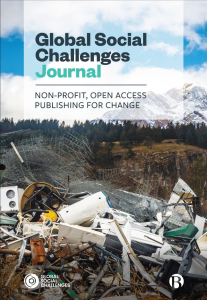 ARTICLE: More than a metaphor: ‘climate colonialism’ in perspective
ARTICLE: More than a metaphor: ‘climate colonialism’ in perspective
An examination of the link between colonialism and climate change from our Global Social Challenges Journal. Gurminder K. Bhambra and Peter Newall argue that colonialism needs to be understood as more than a metaphor in climate change debates.
Read this article by the authors on Transforming Society… ADD LINK WHEN PUBLISHED
ARTICLE: Local approaches to climate-sensitive peacebuilding: Lessons from Afghanistan
Also from Global Social Challenges Journal, Adriana E. Abdenur and Siddharth Tripathi show how climate-sensitive peacebuilding offers a bottom-up alternative to addressing the intersection of these risks in conflict-affected settings.
The last entry here from Global Social Challenges Journal, Mark Harvey’s sociogenic analysis of wealth and environmental resource inequalities signals the need for a radical change in the political processes required to mitigate the climate emergency.
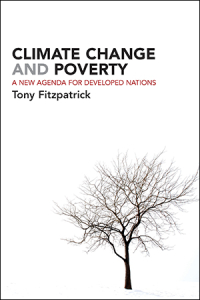 BOOK: Climate Change and Poverty: A New Agenda for Developed Nations
BOOK: Climate Change and Poverty: A New Agenda for Developed Nations
Tony Fitzpatrick offers a timely new perspective on the ‘ecosocial’ understanding of the causes, symptoms and solutions to poverty. He applies this to recent developments, including fuel poverty, food poverty, housing, transport and air pollution.
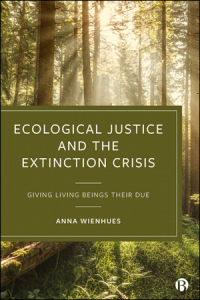 BOOK: Ecological Justice and the Extinction Crisis: Giving Living Beings their Due
BOOK: Ecological Justice and the Extinction Crisis: Giving Living Beings their Due
As the biodiversity crisis deepens, Anna Wienhues sets out radical environmental thinking and action to respond to the threat of mass species extinction.
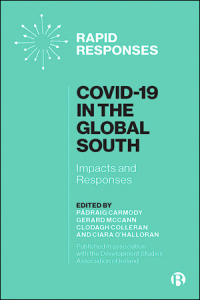 Book: COVID-19 in the Global South: Impacts and Responses
Book: COVID-19 in the Global South: Impacts and Responses
Edited by Pádraig Carmody, Gerard McCann, Clodagh Colleran, and Ciara O’Halloran, this book explores how issues that have arisen in the Global South with the COVID-19 pandemic can be mitigated, including a chapter on climate change and coronavirus.
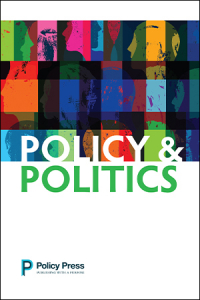 ARTICLE: Brexit implications for sustainable energy in the UK
ARTICLE: Brexit implications for sustainable energy in the UK
In the world-leading Policy & Politics journal, Caroline Kuzemko, Mathieu Blondeel, and Antony Froggatt show that, new UK energy and climate policies post-Brexit are relatively less effective and that hard-pressed civil servants have been drawn away from other important policymaking tasks.
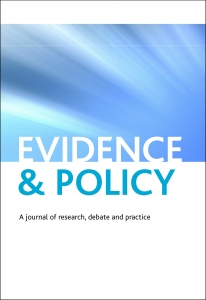 ARTICLE: Scientific data and its limits: Rethinking the use of evidence in local climate change policy
ARTICLE: Scientific data and its limits: Rethinking the use of evidence in local climate change policy
In this Evidence & Policy article, Warren Pearce argues that evidence based on scientific knowledge needs to be more attentive to local contexts for effective policy.
 ARTICLE: House, home and transforming energy in a cold climate
ARTICLE: House, home and transforming energy in a cold climate
Janette Webb, David Hawkey, David McCrone and Margaret Tingey show, in Families, Relationships and Societies, the centrality of personal and domestic relationships to the future of affordable, secure and clean energy.
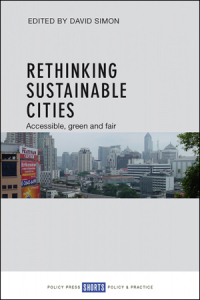 BOOK: Rethinking Sustainable Cities: Accessible, Green and Fair
BOOK: Rethinking Sustainable Cities: Accessible, Green and Fair
David Simon explains the relevance and importance of three central characteristics of sustainable towns and cities everywhere; that they be accessible, green and fair.
Find out more about Open Access at Bristol University Press and Policy Press, including how to publish, here: https://bristoluniversitypress.co.uk/open-access/
Did you know funding may be available to publish your next book Open Access? Find out more.
Follow Transforming Society so we can let you know when new articles publish.
Image credit: Wayra via iStock


